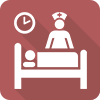- What Are the Signs and Symptoms of Crack Addiction?
- Am I Addicted to Crack?
- How to Encourage Someone to Get Treatment
- Staging an Intervention
- Support Groups for Family and Friends
- Crack Addiction Treatment
- Finding the Best Crack Treatment
Is Crack Addictive? How Addictive is Crack?
For generations, cocaine has been a source of addiction, disease, and broken families. But in the early 1980s, a new, more potent form of the drug swept urban centers, destroying the lives of millions. Crack, the freebase smokable form of cocaine, remains one of the world's most dangerous drugs.
What Are the Signs and Symptoms of Crack Addiction?
There's no reason to use crack. It offers no benefits, even when you're not an addict, and can steadily destroy your body and mind. For this reason, even if you've only used the drug a handful of times, now is the time to quit - before you become addicted. Some signs that you're already an addict include:
- Thinking about crack more than anything else.
- Using crack in a much larger amount than intended.
- Isolating yourself in order to use crack.
- Changes in health, mood, or personality.
- Endangering yourself or those you love because of crack or in an attempt to procure the drug.
- Relying on crack to cope with psychological or physical pain.
Am I Addicted to Crack?
Like cocaine, crack is highly addictive, with some sources suggesting between 10 and 20 percent of users developing an addiction. Crack addiction, once it sets in, is not something over which addicts have a choice. Powerful--and potentially physically painful--cravings keep users repeatedly abusing the drug, despite negative consequences.
Crack addicts have a knack for finding reasons that prove they're not addicts. Maybe your crack-related health problems are minor, or you go days without using crack. The truth, though, is that any use of crack is problematic.
If you're unsure whether you're addicted to crack, try to quit. After all, crack offers you nothing. If you find that quitting is painful or even impossible, it's a sure sign you're an addict; this means you'll likely need professional help to get clean and sober.
Therapists are Standing By to Treat Your Depression, Anxiety or Other Mental Health Needs
Explore Your Options Today
Ad
How to Encourage Someone to Get Treatment
The cold, hard truth is that you can't make someone you love seek treatment or give up crack, no matter how much they love you or how hard you try. What you can do is:
- Work to create an environment where using crack is harder than not using.
- Offer your loved one empathy and acceptance, but don't support their crack habit by providing them a place to stay or giving them money.
- Once your loved one is ready to get clean and sober, be prepared to stand beside him or her through the treatment process, since getting sober is no small feat.
Supporting an addicted loved one is extremely difficult; you might need emotional affirmation or guidance along the way. Please call
1-888-993-3112Who Answers? and get connected to local programs and treatment resources that may be right for you.
Staging an Intervention
There's no guarantee that an intervention will work, but it can give a struggling addict the final push he or she needs to finally accept treatment.
If you've run out of options and are overwhelmed by the stress of a loved one's addiction, then an intervention may be in order. Interventions merge the element of surprise with a group of people who love the addict and are committed to his or her long-term sobriety. There's no guarantee that an intervention will work, but it can give a struggling addict the final push he or she needs to finally accept treatment.
The process begins with each member of the group sharing how the addiction has affected his or her life.
- The child of an addict might express that he/she feels neglected and unloved, for instance.
- From there, each group member will set clear guidelines for how he or she will react if the addict won't accept treatment. The child of an addict might resolve to go live with grandma, or another family member should the parent enter treatment. Finally, each group member will ask the addict to seek treatment.
- Should the addict agree, he or she would attend treatment shortly after that. But if the addict won't accept treatment, then each member of the group will be responsible for following through with their promises of consequences.
Support Groups for Family and Friends
Family and friends are often left out of the equation on websites about addiction and in discussions about crack abuse. But crack addicts can wreak havoc in their loved one's lives. Addicts frequently steal from their loved ones, and the fear that the addict will be arrested, overdose, or disappear is ever present. The anxiety of loving an addict can drive even the calmest person over the edge.
Programs like Nar-Anon--a sister program to the renowned Narcotics Anonymous--can help you, as a family member or friend, make sense of a life ripped apart by addiction. Depending on where you live, local organizations, community groups, and churches may offer additional support programs.
Crack Addiction Treatment

Crack addicts frequently need inpatient treatment, both as a way to escape the peer pressure that often co-occurs with addiction and as an opportunity to pursue recovery in a low-stress setting. If you loathe the idea of leaving behind the comforts of home, think again. Luxury treatment centers offer private recovery options in gorgeous, spa-like settings. You may have access to a gourmet chef, intriguing classes, and a private room.
But what about those who can't leave work behind? At some rehab facilities, you can take it with you! Executive rehab facilities offer meeting spaces, a business center, and the chance to continue working. If your work plays a role in your addiction, executive rehab can be ideal since it affords you a chance to explore the interplay between the two.

If you're on the fence about rehab, you might want to consider intensive outpatient or partial hospitalization programs. These programs offer intense
addiction treatment, but with the chance to return home at the end of the day. Some addicts opt for these programs after finishing a stint in rehab, while others choose these programs as their first line of defense.

Not ready to try rehab? You can still get sober. Therapy,
12-step programs, medical care, and even lifestyle changes such as more exercise can get you on the road to recovery. Generally speaking, the more treatment options you try, the better your chances are of getting sober, so consider, for example, going to therapy alongside a 12-step program.
Finding the Best Crack Treatment
Every crack addict has a story. Whether it's an abusive childhood or the challenges of a stressful job, you became an addict for a reason. There's no reason to feel ashamed, and finding the right program can make the difference between a smooth recovery and a destroyed life. Don't shy away from asking pointed questions. Learn everything about the crack treatment facility you've chosen, and ask for references. When you've found the right place, you'll know. Good treatment makes you feel comfortable being you.
Treatment is never easy, but it is worth it. Stick with it, and you may be surprised by how different your life can look in just a few short months. Guidance is available to help you pick a treatment plan that meets your needs; please call
1-888-993-3112Who Answers? to speak with one of our compassionate treatment support representatives.
Instantly Check The Insurance Coverage
- We’ll instantly check the coverage offered by your insurance provider.
- You may receive treatment at one of our facilities at a reduced rate.
- Though not required, entering your policy membership ID will help expedite your verification process.
As advocates of mental health and wellness, we take great pride in educating our readers on the various online therapy providers available. MentalHelp has partnered with several thought leaders in the mental health and wellness space, so we can help you make informed decisions on your wellness journey. MentalHelp may receive marketing compensation from these companies should you choose to use their services.
MentalHelp may receive marketing compensation from the above-listed companies should you choose to use their services.
Ad


